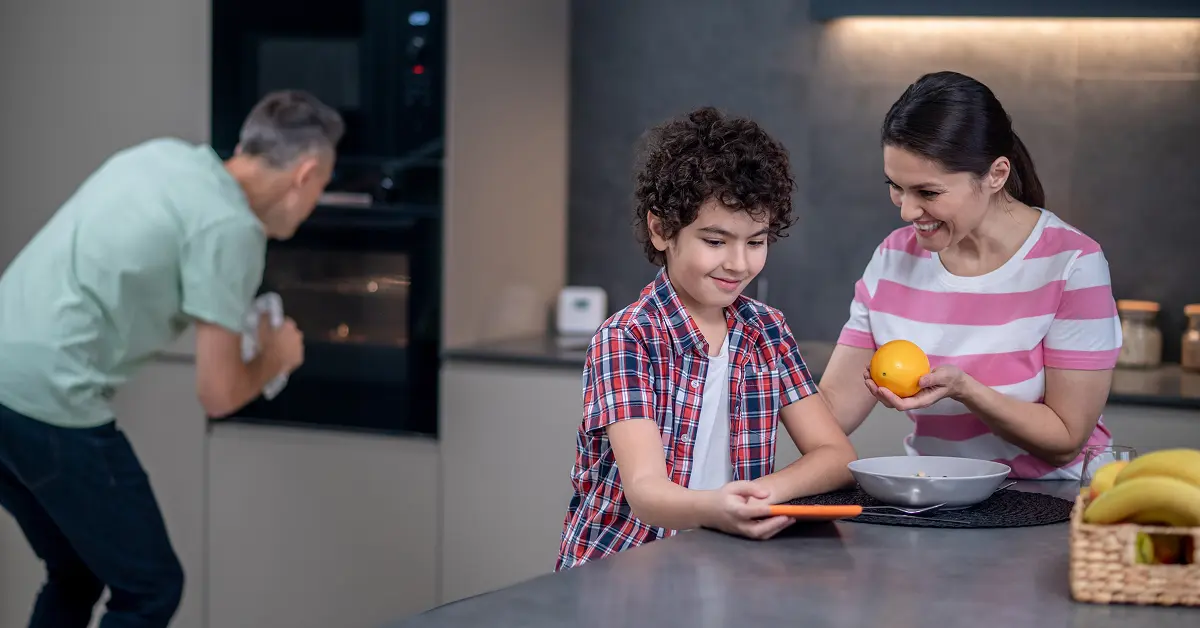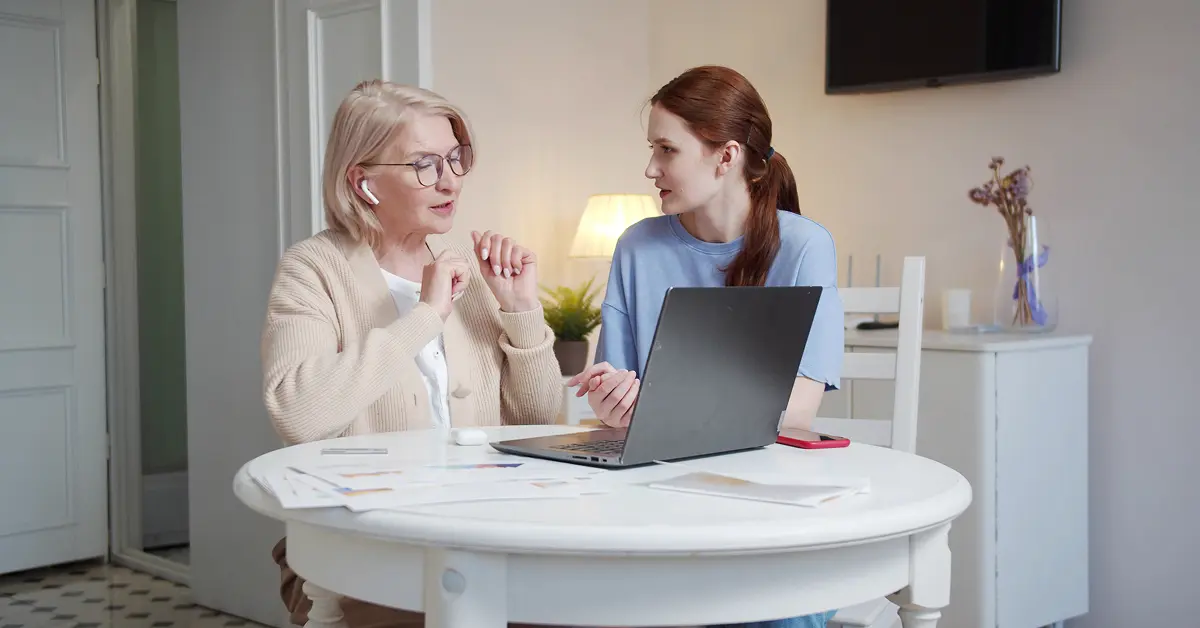As our parents age, it's natural for their needs to evolve. While many seniors in India prefer the comfort and familiarity of their own homes, there often comes a time when daily assistance becomes necessary. Recognising the signs early can help families provide the right care and ensure their elderly loved ones remain safe, healthy, and comfortable. In this blog post, we will explore the clear indicators that your Parent Caregiver need daily care at home.
Struggling with Activities of Daily Living (ADLs)
The most apparent sign your parent might need daily care is difficulty performing basic tasks. These activities, known as ADLs, include:
- Bathing and grooming
- Dressing appropriately
- Eating regularly and healthily
- Using the toilet
- Mobility around the house
If your parent is increasingly dependent on others or is skipping these routines, it's a red flag that professional in-home support may be necessary.
Memory Loss and Cognitive Decline
Forgetting appointments, repeating stories, or getting confused in familiar surroundings could indicate the onset of dementia or Alzheimer's. Mild forgetfulness is common with ageing, but consistent memory lapses can interfere with daily life and require supervision. A caregiver can provide routine, medication reminders, and safety monitoring.
Poor Nutrition and Unintended Weight Loss
Check your parent's kitchen for expired food, empty shelves, or evidence of skipped meals. A sudden drop in weight or visible frailty is concerning. It could mean they are forgetting to eat, unable to cook, or have lost interest in meals due to health or emotional issues. Daily care can ensure they are receiving proper nutrition and hydration.
Frequent Falls or Balance Issues
If your parent has experienced multiple falls or shows signs of unsteadiness while walking, it’s crucial to act quickly. Falls are a leading cause of injury among Indian seniors. In-home caregivers can assist with movement and help make the home safer with mobility aids, grab bars, and clutter-free pathways.
Medication Mismanagement
Many seniors in India take multiple medications. Forgetting doses, overdosing, or mixing up prescriptions can lead to serious health complications. If you notice pills left untouched or confusion over schedules, your parent may need someone to manage their medication daily.
Changes in Personal Hygiene
Neglecting personal hygiene is often a sign that your parent is overwhelmed or physically unable to manage these tasks. Look out for signs like body odour, unwashed clothes, dirty nails, or dental issues. A daily caregiver can assist with grooming, bathing, and maintaining personal dignity.
Social Isolation and Loneliness
Isolation is a growing concern for seniors in India, especially as children migrate for work or marriage. If your parent has stopped participating in community events, temple visits, or meeting friends, they might be experiencing loneliness or depression. A caregiver provides companionship and emotional support along with physical assistance.
Unsafe Living Conditions
During your visits, observe the state of the home. Piled-up laundry, dirty dishes, unpaid bills, or missed appointments are signs your parent may no longer manage their household effectively. A daily caregiver can ensure the home stays clean, organised, and safe.
Mood Swings or Behavioral Changes
Sudden changes in mood, irritability, confusion, or aggression can stem from health issues, loneliness, or cognitive decline. These changes shouldn't be ignored. A trained caregiver can monitor behaviour patterns and alert family members or doctors when intervention is needed.
Car Accidents or Driving Concerns
If your parent has been involved in minor accidents or is increasingly hesitant to drive, it’s a concern. Poor eyesight, delayed reflexes, or confusion while driving can be dangerous. At this point, they may need assistance with errands, appointments, or social visits from a caregiver or family member.
Doctor's Recommendation
If a physician has advised increased monitoring or in-home care due to chronic illness, recovery after surgery, or age-related health issues, it’s important to heed their advice. Many Indian families delay such decisions out of guilt or hope—but listening to medical professionals ensures better long-term health for your parent.
You’re Feeling Burned Out as a Caregiver
If you are already helping your parent but find yourself physically and emotionally exhausted, it may be time to bring in professional help. Family caregiving is rewarding but also demanding. Daily care services offer much-needed respite and balance for family members, especially those juggling work and home responsibilities.
Conclusion: Being Proactive is Key
Recognising the signs that your parent needs daily care at home is the first step towards ensuring their well-being. In India, where family caregiving is deeply rooted in tradition, it can be difficult to acknowledge when help is needed. However, timely intervention can prevent emergencies and improve your parent’s quality of life.
Daily in-home care services not only provide physical support but also emotional reassurance for both the elderly and their family members. Whether it's full-time assistance or part-time support, exploring these options early ensures your loved ones age with dignity and comfort in the place they call home.
Contents
- Struggling with Activities of Daily Living (ADLs)
- Memory Loss and Cognitive Decline
- Poor Nutrition and Unintended Weight Loss
- Frequent Falls or Balance Issues
- Medication Mismanagement
- Changes in Personal Hygiene
- Social Isolation and Loneliness
- Unsafe Living Conditions
- Mood Swings or Behavioral Changes
- Car Accidents or Driving Concerns
- Doctor's Recommendation
- You’re Feeling Burned Out as a Caregiver
- Conclusion: Being Proactive is Key
Our 24*7 services
Latest Posts
- What Is Respite Care and Why Is It Important
- Affordable home care for senior citizens in India
- Caring for Seniors with Dementia or Alzheimer's at Home
- Senior Caregiving A Guide for Every Family
- How to Write a Caregiver Resume That Gets You Hired
- How Care After Hospital Discharge Speeds Up Recovery at Home
- How to Get Home Health Care for Seniors Through Medicare
- What Does a Senior Citizen Caregiver Really Do at Home
- How to Care for Elderly Parents with Alzheimer’s or Dementia
- How to Get 24-Hour Care for Seniors at Home


